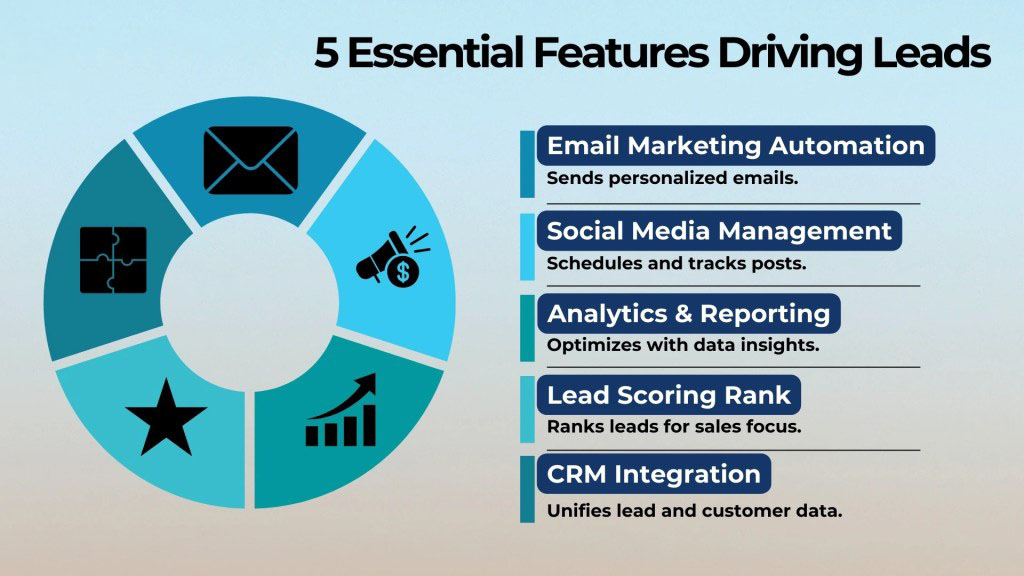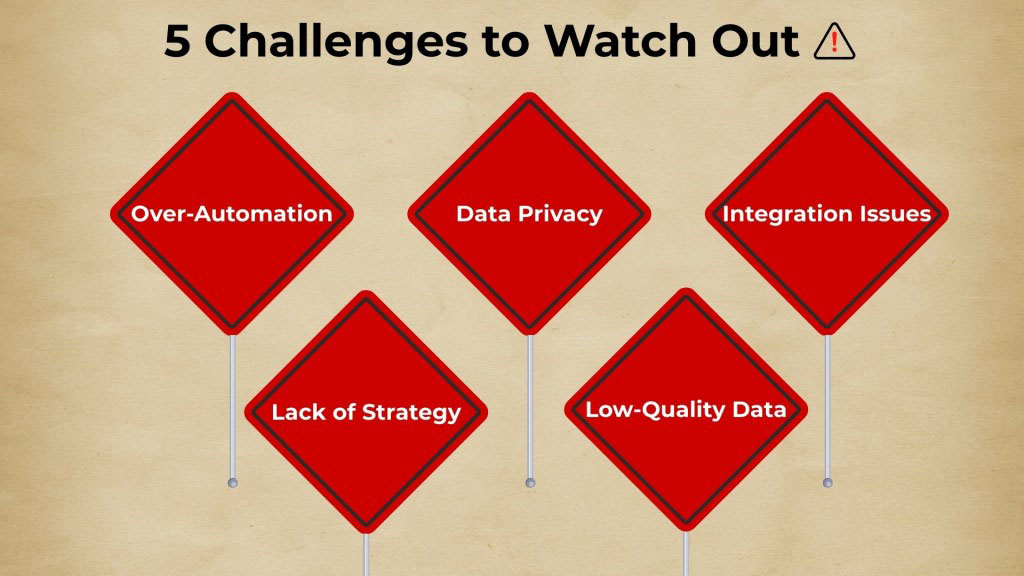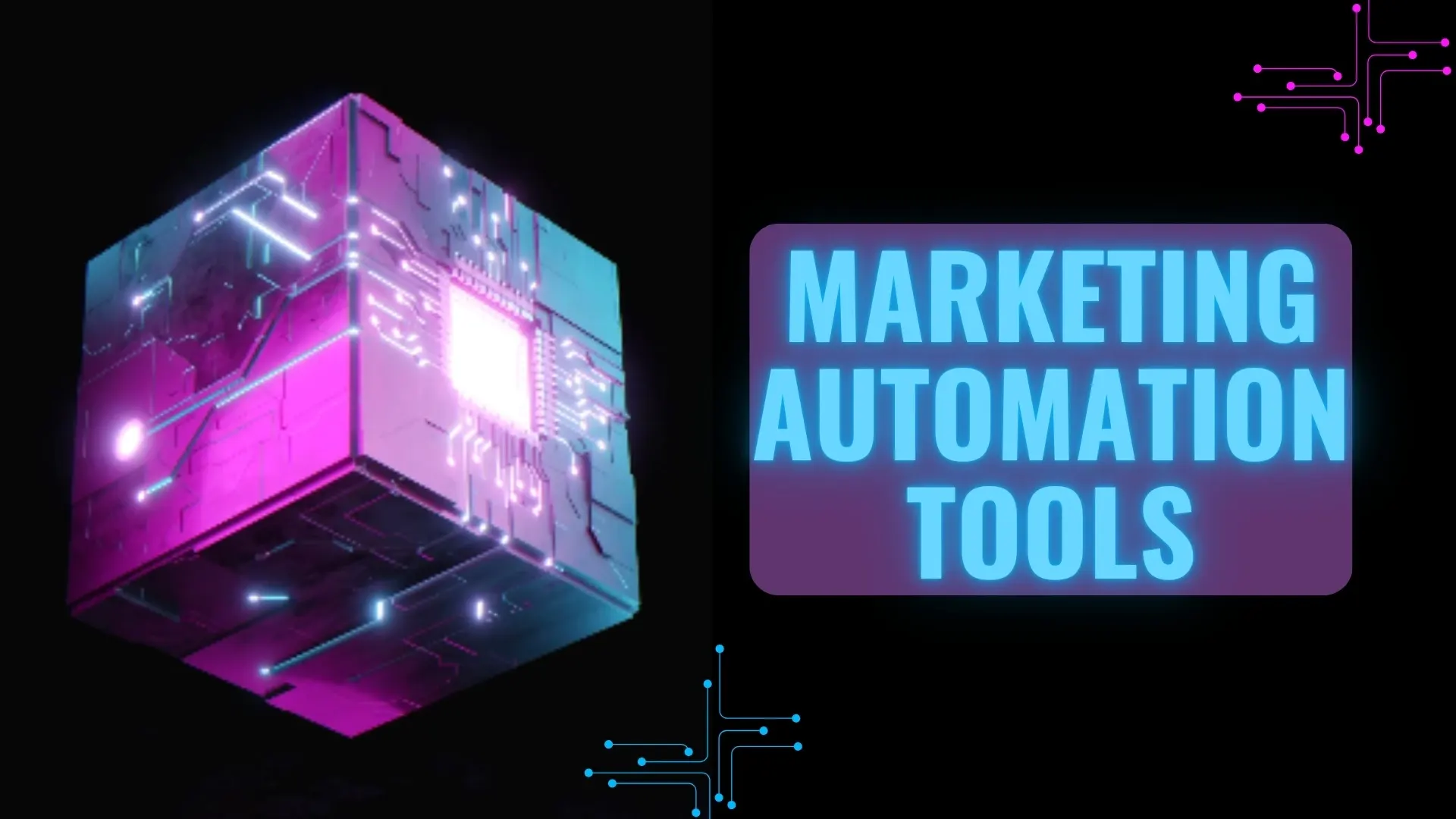In today’s fast-paced digital landscape, generating high-quality leads is more challenging than ever. Digital marketing professionals continually seek innovative strategies to attract and retain potential customers. One such strategy that has proven to be a game-changer is utilizing marketing automation tools. These tools simplify marketing tasks while also playing a vital role in improving lead generation . An in-depth look at how marketing automation tools drive more leads, providing valuable insights for digital marketers striving to refine their strategies.
Understanding Marketing Automation Tools
Marketing automation tools are software solutions designed to streamline repetitive marketing tasks, manage campaigns across multiple channels, and provide valuable insights through data analysis. They allow marketers to effectively reach their audience with tailored content, boosting engagement and conversions.
Key Features of Marketing Automation Tools
Email marketing automation delivers personalized emails like welcome messages and follow-ups based on user actions, while lead scoring ranks leads by their brand interactions to help sales teams target high-potential prospects. Social media management streamlines post-scheduling, engagement tracking, and performance analysis across platforms via a single dashboard.
Analytics and reporting offer insights into campaign results, supporting data-driven strategy improvements. CRM integration unifies customer data with marketing tools for a seamless view of leads and customers. Together, these features enable businesses to build effective marketing strategies that attract and guide leads through the sales funnel.

How Marketing Automation Tools Drive Lead Generation
Marketing automation tools are essential for improving lead-generation efforts through various strategies:
Enhancing Lead Qualification
Effective lead qualification ensures that marketing and sales teams focus their efforts on potential customers with the highest likelihood of conversion. Marketing automation tools achieve this by using lead-scoring systems that evaluate and rank leads based on their engagement with your brand.
Personalizing Marketing Efforts
Personalization is key to attracting and maintaining customer engagement . Marketing automation tools analyze user behavior and preferences to deliver tailored content that resonates with individuals. This targeted approach increases engagement and strengthens brand relationships with potential customers.
Streamlining Campaign Management
Managing multi-channel marketing campaigns can be complex and time-consuming. Marketing automation tools streamline this process by allowing marketers to schedule and manage campaigns from a centralized platform. This ensures consistency in messaging and branding, which helps build trust and recognition. Consistency in messaging and branding is vital for building trust and recognition.
Guiding Leads Through Automated Workflows
Not all leads are ready to make a purchase right away; some require ongoing engagement. Marketing automation tools enable businesses to create automated workflows that deliver relevant content based on where leads are in the buyer’s journey.
Aligning Sales and Marketing Teams
A common challenge in organizations is the misalignment between sales and marketing teams. Marketing automation tools bridge this gap by providing a unified platform where both teams can access real-time data on lead status, behavior, and engagement. This transparency fosters collaboration, ensures that marketing efforts align with sales objectives, and leads to more effective strategies for converting leads into customers.
Implementing Marketing Automation: Best Practices
To fully leverage marketing automation tools for lead generation, follow these best practices:
Define Clear Goals and Objectives
Before implementing automation, establish clear goals for what you aim to achieve, such as increasing lead volume, improving lead quality, or shortening the sales cycle. Clear objectives guide the selection of appropriate tools and the design of effective automation workflows.
Develop Targeted Content Strategies
Automation is only as impactful as the quality of the content it delivers. Develop content that addresses your audience’s needs and challenges at every stage of the buyer’s journey. This ensures that automated messages are relevant, engaging, and encouraging movement toward conversion.
Regularly Analyze and Optimize Campaigns
Continuous improvement is vital for successful marketing automation. Continuously monitor campaign performance metrics to identify opportunities for improvement. Perform A/B testing on subject lines, content formats, and sending times to identify what best engages your audience. Leverage these insights to optimize your strategies for higher engagement and conversion rates.
Ensure Data Quality and Integration
The success of marketing automation largely depends on the accuracy and quality of data. Ensure that your databases are clean, up-to-date, and integrated across all platforms. Accurate data enables precise targeting and personalization, which are crucial for engaging leads effectively.
Invest in Training and Support
Equip your team with the necessary skills to leverage marketing automation tools effectively. Investing in training and ongoing support ensures that your team can design, implement, and optimize automation strategies that align with your business goals.
Challenges and Considerations

Over-Automation
Overusing automation can make your brand less engaging. Maintaining balance by adding human touchpoints, such as personalized messages and live interactions.
Integration Issues
Ensure that your automation tool integrates well with your existing systems, including CRM and analytics platforms, to maintain smooth data flow and consistency.
Compliance with Data Privacy Regulations
Ensure compliance with regulations like GDPR and CCPA by obtaining user consent for data collection and maintaining transparency in data usage.
Lack of Strategy
Marketing automation is only as effective as the strategy behind it. Create a strategic plan that aligns with your business objectives to maximize the impact of marketing automation.
Low-Quality Data
Inaccurate or poor-quality data can reduce the effectiveness of automation efforts. Regularly update and clean your contact database to ensure accurate targeting and engagement.
The Future of Marketing Automation
As artificial intelligence and machine learning advance, marketing automation will become even more powerful. AI-driven automation will enhance predictive analytics, chatbot interactions, and hyper-personalization, making lead generation even more efficient.
Emerging Trends in Marketing Automation

AI-powered predictive analysis uses artificial intelligence to analyze past user behavior and predict future actions, helping businesses refine campaigns with greater precision. Conversational marketing employs automated chatbots and AI assistants to manage customer inquiries and guide leads toward conversions. Hyper-personalization relies on real-time data to craft highly customized messages for individual users.
Voice and visual search optimization aligns automation tools with the growing use of voice assistants and image-based searches. Enhanced ecommerce integration advances marketing automation with features like abandoned cart reminders and tailored product suggestions. These innovations collectively enable businesses to develop more impactful, adaptive, and customer-focused marketing approaches.
Key Takeaways & Future Outlook
Marketing automation tools have revolutionized how businesses attract and manage leads. By automating workflows, personalizing interactions, and leveraging data insights, businesses can significantly enhance their marketing effectiveness. As the digital landscape continues to change, optimizing marketing automation strategies will be crucial for staying competitive in lead generation and customer acquisition . If you’re looking to scale your marketing efforts and drive more leads, investing in the right marketing automation tool is the way forward.


